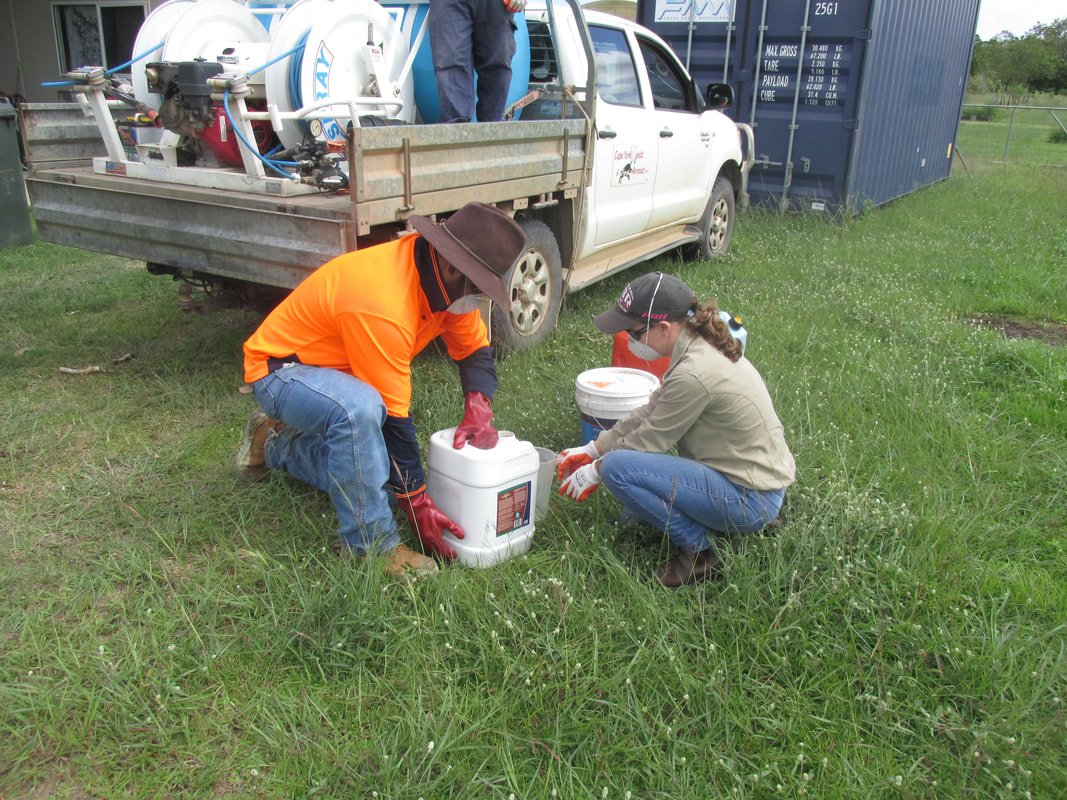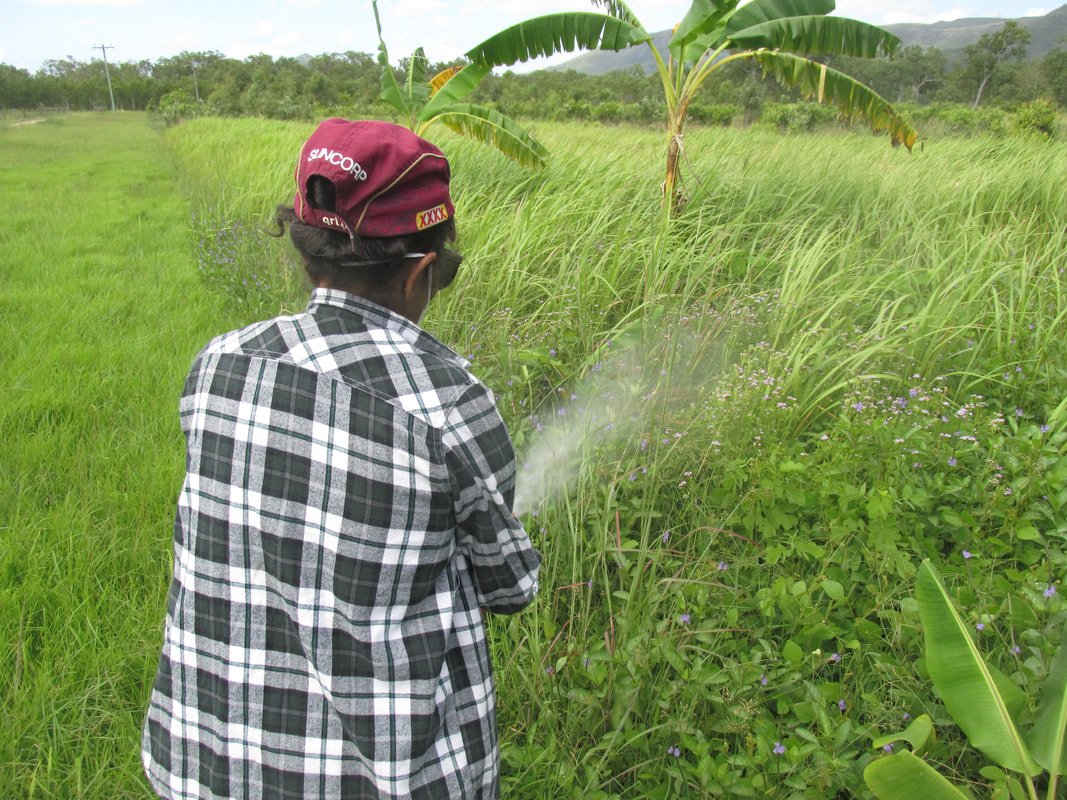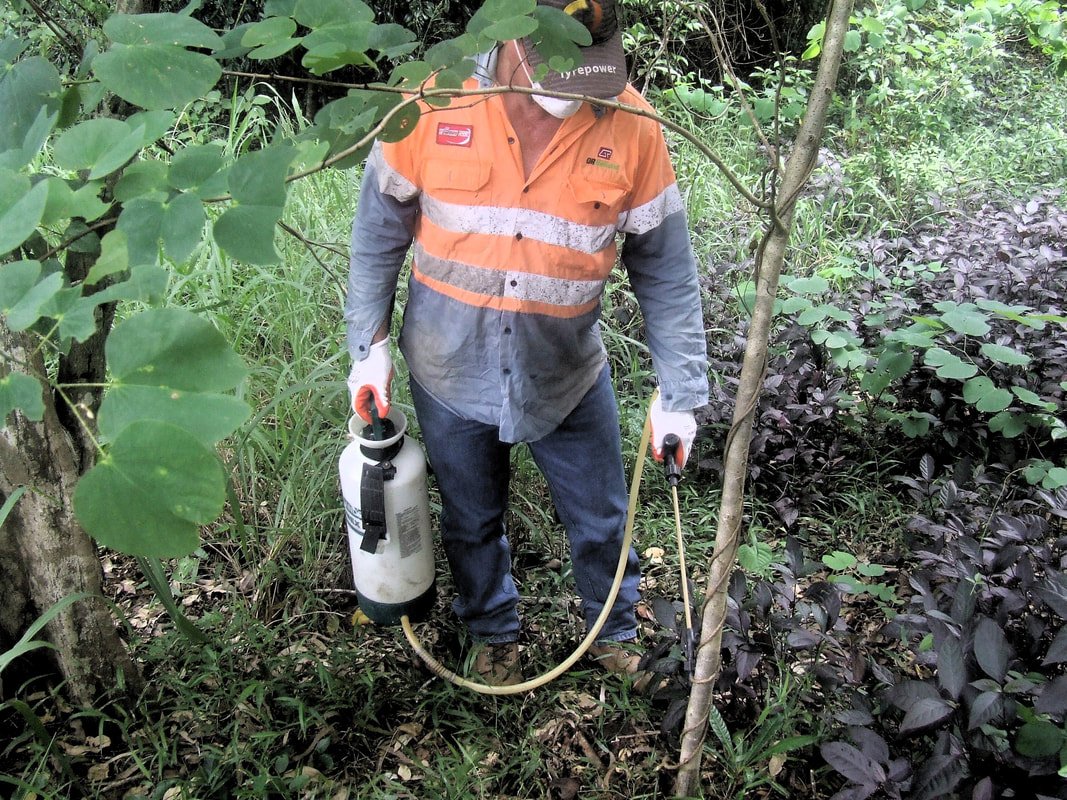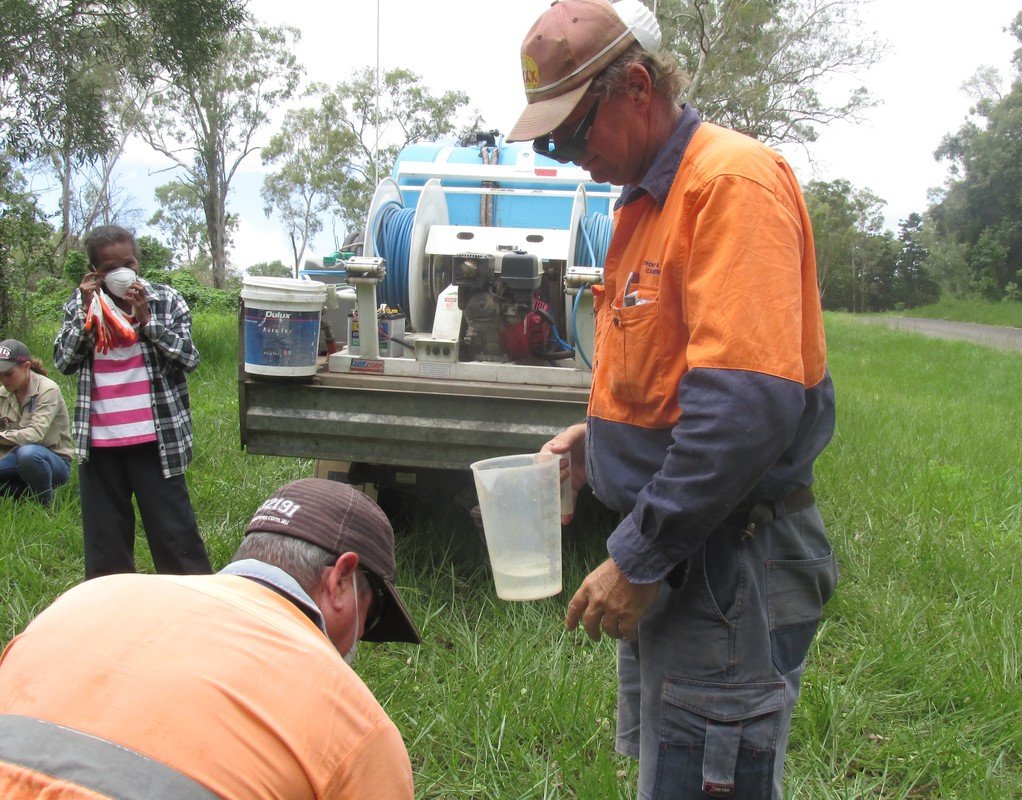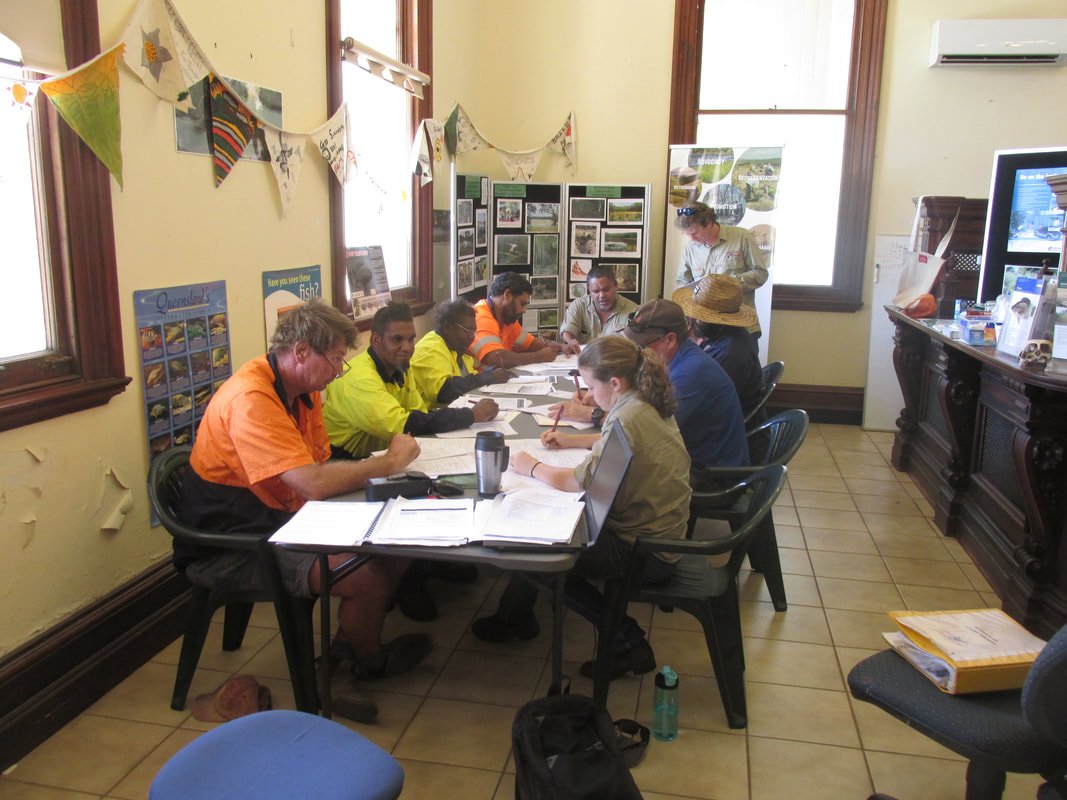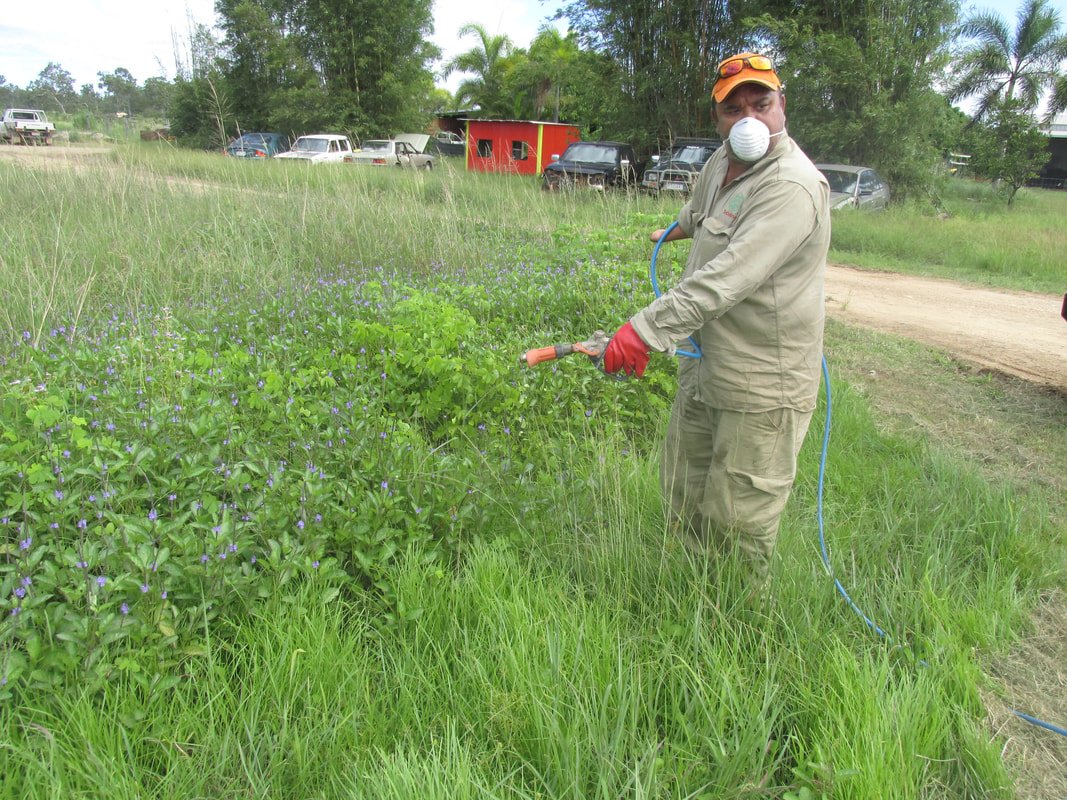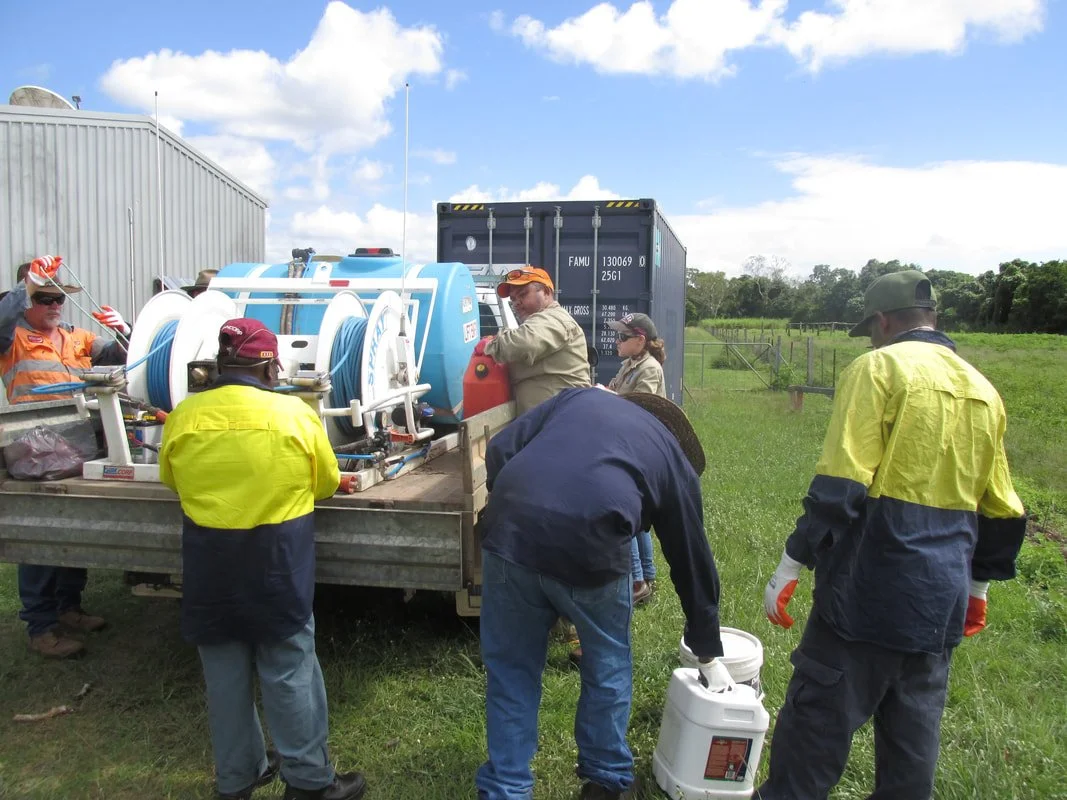QFPI-Landholder Second Course in AC/DC Herbicide Training
12/03/2018 - 14/03/2018
We conducted the second block of AC/DC training for the Aboriginal Rangers, horticulturists and graziers who will be conducting weed control work, on their respective properties.
• This involved a further nine trainees. Bringing the number up to seventeen, out of a total of thirty five people who are encouraged to take up the training.
• This work is being conducted as a part of the Cape York Weeds and Feral Animals, Incorporated, and Cape York NRM Queensland Feral Pest Initiative Project.
• Cape York Weeds and Feral Animals Incorporated are working in conjunction with individual properties, ranger groups, and eligible community members.
• This forms a part of the strategic control of locally declared and other declared weed infestations in the South East Cape York Area. This includes all the productive land areas within Laura Valley, Cooktown, Endeavour Valley, Mt Amos and Rossville.
• The main objective is to strategically eliminate weeds and to improve the productivity of their properties, landholdings and aboriginal land, located in Cape York Peninsula.
• The secondary goal is to reduce the spread of this species down the river systems and along road networks. Because of the increased vehicular traffic due to traditional owner movement, tourism and various causes, the biggest challenge is to reduce weed seed spread into previously clean areas.
• Weeds such as Sicklepod, Lantana, Singapore Daisy, Gamba Grass etc art also being spread throughout the roads and river systems of these farming systems.
• The main aim of the second AC/DC training course was to give the graziers, Ranger groups, eligible individuals, and horticulturists the necessary skills to be able to strategically target all the weeds that have been identified in their pest management plan, as well as their core land management responsibilities.
• It was decided to go to the Gungarde owned community farm property in the Endeavour Valley, as they were set up for the training and the practical components of the training.
• The weather was kind and allowed us to complete the full course.
• The nine landholders were:
Horticulturists: Tony Holmes, Geoff Bird, Nathan Jacobs
Aboriginal Rangers: Herbert Henderson, Julieann McIvor, Thomas Ling, Neville Bowen, Deborah Wallace
South Cape York Catchments:Katelyn Greaves
• Because the weather was very kind to us we successfully completed all modules.
• The landholders were shown how to safely spray, safe chemical use, the safe operation of a spray unit, and basic weeds id. The full AC/DC course was delivered, along with all the latest Weed control and Herbicide mixing techniques.
• The techniques used were extensively practiced, giving the landholders as much practical experience as possible
• The control program was mainly concentrating on the Declared Species on the land and water courses on the Gungarde owned farm property.
• Several weed control techniques were used to control weeds on the Gungarde property, including foliar spraying and basal barking. With the added ability to be able to identify what weeds were on the property, the landholders were able to design an effective control plan for the Gungarde farm.
• After successful employing the foliar spraying technique, on the smaller declared weed species, the group started using the basal barking techniques, on the Bauhinia along the water course.
• As the Bauhinia species consisted of grown plants well over two metres high, the basal barking technique was actively used and worked well.
• The crew was professional and keen. They worked hard to practice their new skills.
• I found them to be willing to have a go and very conscientious.
• Control work was conducted well and thoroughly.
• Training on the use of GIS mapping techniques was briefly given.
• We did what we could get to and everything was mapped and data sheets completed
• Travelled home.
• Vehicles and all gear were cleaned up. Maintenance sheets were completed.
• Because the AC/DC was carried out over the full three days, more practical work was able to be carried out.
• Eric Dick helped me deliver the successful training modules. All in all, we managed to complete all the training outcomes, in spite of everything.
The graziers, rangers, and horticulturists are to be commended on their efforts and their willingness to help. They were keen to have a go.
